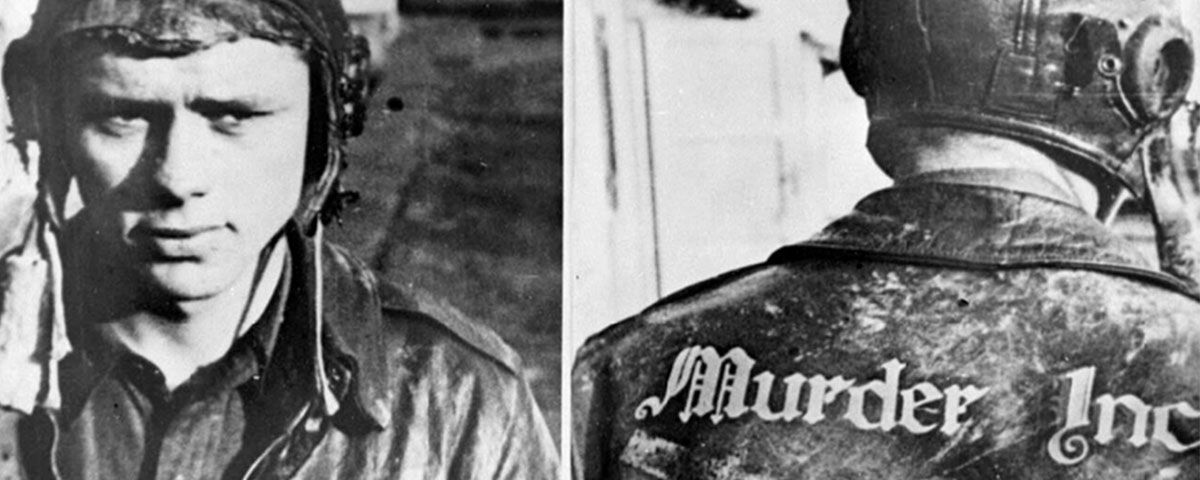
Editor’s note: This article first appeared on The War Horse, an award-winning nonprofit news organization educating the public on military service, under the headline “He lived three doors down in the Alaskan Army barracks. Now, I carry his ghost in my pocket.” Subscribe to their newsletter.
Active-duty service members and veterans thinking of harming themselves can get free crisis care. Contact the Military Crisis Line at 988, then press 1, or access online chat by texting 838255.
October 19, 2019
A bus ride outside Atlanta international airport. A sea of confused, perspiring faces. We were on our way to training, uncertain of what lay ahead, each of us questioning whether we had made the right decision. We arrived at the 30th Adjutant General Battalion (30th AG), a building with all the charm of a DMV and none of the patience.
The drill sergeant stepped onto the bus and barked, “All belongings stowed away! You will speak only when spoken to! Move when we tell you to! Eat when we say so!”
It was real now. The tension in the air was thick. That first night, lying on my stiff barracks mattress, I heard muffled sobs in the darkness. We had lost our autonomy, our sense of self. And it was just the beginning.
During those sleepless nights, stories passed among us like currency exchanging hands. Some were ridiculous, meant to distract us. Other stories lingered in the air long after they were told. “There was a kid last cycle,” my friend Hansen whispered. “He couldn’t take it anymore. Climbed to the top of the company building and jumped.”
I wanted to dismiss it as lore. The 30th AG is a processing unit where we got haircuts, uniforms, and learned that we don’t own ourselves anymore. I heard they wouldn’t let that soldier leave or quit, so he took the only way out he saw fit. I didn’t know then how much that story would echo in my own experiences.

By July 2020, I had completed basic training and arrived at Fort Wainwright, Alaska. I was fit, eager, and overconfident. I thought I knew everything. I was assigned to Bravo Company alongside two others, Pflaum and Johnston.
We integrated well, pushing ourselves in training. I pursued every opportunity to prove myself, becoming increasingly desensitized to hardship. I saw people slacking and resented them for it. “If this were life or death,” I’d say, “I hope I never have to rely on someone like you.”
I never stopped to consider that maybe they were giving all they had. Maybe their battles were just different from mine.
October 2022
A brutal training mission in the Alaskan mountains. Twelve miles of unforgiving terrain with 80 pounds of equipment strapped to us. The snow was breathtaking, tiny prisms catching the light, the only beauty in a world of exhaustion. I kept morale up by shouting, “I hope there’s another hill!” My platoon grumbled but laughed, and that was the point. You smile in hard times, and people mirror it.
One evening, as the bitter wind howled through the mountains, a few of us huddled around a fire, stealing a rare moment of warmth. My buddy Johnston was there, the guy who had come to the unit with me. In the flickering glow, we talked about the things soldiers always do when the days are long and the training sucks: food, home, and the Army.
Johnston spoke about his fiancée, and for a little while, the weight of the mission melted away. We laughed, swapped stories, and joked about the future, as if the fire between us could shield us from the cold reality of the mountains. Then, just as quickly as it had begun, the training event ended.

The long walk back felt even more grueling than the entire training mission itself, our bodies battered, our energy drained, and every step weighed down by exhaustion from the relentless days before.
I saw Johnston at the back, struggling for breath but refusing to quit. I rushed to help, only to be ordered back in line. “You will not assist him!” The voice cracked at me like a whip from the 3rd platoon’s sergeant.
I obeyed because the alternative was worse. And I watched. Johnston didn’t fall. The strain of the weight made his neck veins pop, and his face turned red. He was gasping for air, and all we could do was encourage him. He was suffering. We trekked on.
Since I was the leading man for my platoon, I had a front row seat to his discomfort and would often remind him to take it slow and that no one was judging him. After six long miles, he made it. But something about him was different.
Halloween weekend
We were celebrating surviving the newest training operation, indulging in the simple joy of comfort, booze, and warmth. Life couldn’t be any better. Then my phone rang. “Are you OK?” my squad leader asked.
“Yes, everything is fine. What’s up?” I said.
“Oh, nothing, never mind,” said my squad leader. Apparently, a Johnson had died by suicide on base, and they were checking to see if it was me. I thought nothing of the situation because it was so common at Fort Wainwright, among the highest suicide-rated Army bases at the time.
I went back to the party like nothing had happened. A few moments later, I get a call back from my squad leader. It turns out it wasn’t a Johnson. It was Johnston. Three doors down from my barracks room, he had taken his own life. I rushed from my party, speeding as fast as I could in disbelief. I finally got to the barracks, and when I got to the second floor where we lived, I collapsed, sobbing in a way I hadn’t in years.
Memories flooded back of our conversations, his laughter around the fire the night before. The memories of the training mission, the last time I saw him, struggling but pushing forward. I thought, “If only I were there, I could have saved him.”
That’s the thing about suicide; you never fully see someone’s pain until it’s too late. Yet, I did.
The next day, we gathered in the company room. Our commander delivered the same cold, rehearsed speech: “Johnston is dead. If you need help, we have resources.” That was it. This speech had been given too many times before. Death was just another statistic, another room cleaned with bleach, and another new soldier moved in unknowingly.
The cycle repeats. For weeks, the scent of bleach clung to the hallways, a quiet, ghostly reminder.
I was furious. Not just at the system, but also at myself. Because deep down, I understood him. I could picture myself in his shoes. I could hear the metallic click of the safety switching from “safe” to “fire.” The weight of the barrel against my head. The final squeeze of the trigger. Was there anything after?
Johnston had a fiancée, was only 23 years old, and, in all aspects, had a life worth living. Now, unfortunately, his name will be synonymous with a statistic. Another dead at Fort Wainwright.
Some nights, I found myself walking the halls, stopping outside his old room, half-expecting him to open the door and tell me this was some elaborate, messed-up training exercise. But the door stayed closed. The memories stayed in my head. And the questions remained unanswered.
I had spent my whole life idolizing soldiers, heroes from documentaries, men who fought for something bigger than themselves. Do you know what no one tells you about the ones who don’t make it? No one tells you that even the strongest among them sometimes feel like they have nothing left.
I didn’t want to be another number, another statistic in the Army Times. I wanted to live. I wanted to help others live. I was tired of all this death.
A year after Johnston’s death, sitting in a foxhole with my buddy Gregg, I admitted something I had been too afraid to say: I was depressed and tired. I was over my childhood dream of being a super soldier. I wanted to travel the world, experience life, and go to college. The fear of dying before truly experiencing life had caught up to me. Gregg, always the pragmatic one, nodded. “Then do it.” So, I did.
When I finally got out, I carried that weight with me. Civilians don’t understand, not really. They offer condolences, sometimes curiosity, but they can’t grasp the full weight of it. It’s something uncommon that was made common for us. I used to envy them for that. I resented their comfort, because mine had been stripped away. Now, I appreciate it. Their freedom from the weight tells me our sacrifice wasn’t in vain.
They don’t wake up sweating from dreams of barracks hallways and dead friends. Most don’t know what it feels like to carry ghosts in their pockets. At first, being a civilian again felt alien. The world seemed softer, quieter, almost too easy. No one was screaming at me to move faster. No one was tracking my every decision. For the first time in years, my autonomy was my own. But my mind was another story.
Some days, the weight of it all settled on my chest like the rucksack I used to carry. An unseen but undeniable burden. It wasn’t just Johnston. It was all of them. The ones who didn’t make it. The ones who did but left pieces of themselves behind. I thought about them in the quiet moments, as the wind cut through the trees on cold mornings, reminding me of those Alaskan mountains.
January 21, 2025
It’s a Tuesday, and I’m sitting outside Norlin Library at the University of Colorado Boulder. The winter sun is unusually warm. Students are laughing, and kids are playing hacky sack. Couples hold hands. Friends admire each other’s work. This is normal. And it feels good to be normal.

I wish Johnston had made it to this moment. I wish the 30 soldiers who died in Alaska during my time at Wainwright had gotten to see this moment. I wish they had seen that life outside the military could be bright and full of possibilities.
My depression has lifted. I still wake up crying sometimes, speaking to ghosts, but the tears are no longer born of sorrow; they’re rooted in gratitude. I get to keep going. I get to grow older. And that, in itself, is a gift. Life is beautiful, not because it’s easy or fair, but because it continues.
This War Horse Reflection was edited by Kim Vo, fact-checked by Jess Rohan, and copy-edited by Mitchell Hansen-Dewar. Hrisanthi Pickett wrote the headlines.
Jake Johnson is a writer and military veteran drawn to questions about meaning, belonging, and the unseen forces that shape human experience. After four years in the Army, he is studying English at the University of Colorado Boulder, searching for a language precise enough to capture the tension between personal conviction and everyday realities. He is committed to understanding himself and the world, driven by equal parts curiosity, discipline, and a sense of wonder.










-3.png)



